
The purpose of a language is to communicate with our fellows. All languages must change to fit the times. New words become necessary. Old words take on new meanings. The way in which words are put together evolves. The rules we learnt as children do not last forever.
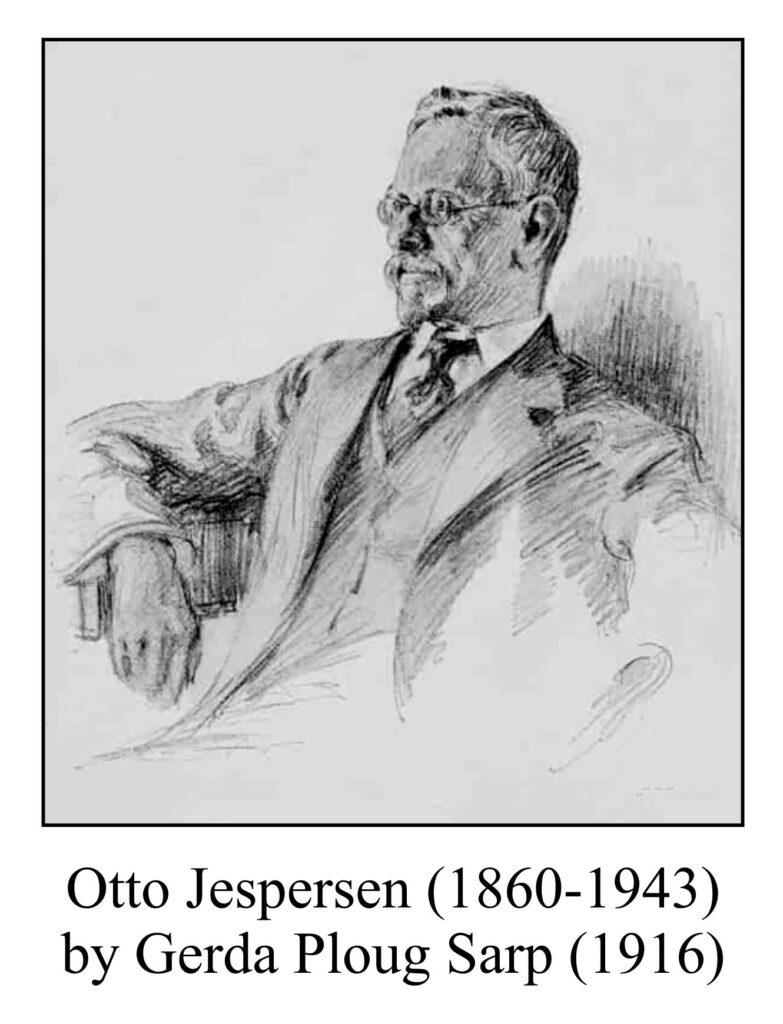 In the preface to his seven-volume A Modern English Grammar on Historical Principles (1909-1949), the great Danish linguist Otto Jespersen remarked
In the preface to his seven-volume A Modern English Grammar on Historical Principles (1909-1949), the great Danish linguist Otto Jespersen remarked
It has been my endeavour in this work to represent English Grammar not as a set of stiff dogmatic precepts, according to which some things are correct and others absolutely wrong, but as something living and developing under continual fluctuations and undulations, something that is founded on the past and prepares the way for the future, something that is not always consistent or perfect, but progressing and perfectible – in one word, human.
He restated this principle in his briefer Essentials of English Grammar (1933), and went on to describe some of the forces that serve to vary and to fix a living language:
Language is nothing but a set of human habits, the purpose of which is to give expression to thoughts and feelings, and especially to impart them to others. As with other habits it is not to be expected that they should be perfectly consistent. No one can speak exactly as everybody else or speak exactly in the same way under all circumstances and at all moments, hence a good deal of vacillation here and there. The divergencies would certainly be greater if it were not for the fact that the chief purpose of language is to make oneself understood by other members of the same community; this presupposes and brings about a more or less complete agreement on all essential points. The closer and more intimate the social life of a community is, the greater will be the concordance in speech between its members. In old times, when communication between various parts of the country was not easy and when the population was, on the whole, very stationary, a great many local dialects arose which differed very considerably from one another; the divergencies naturally became greater among the uneducated than among the educated and richer classes, as the latter moved more about and had more intercourse with people from other parts of the country. In recent times the enormously increased facilities of communication have to a great extent counteracted the tendency towards the splitting up of the language into dialects – class dialects and local dialects.
The following print Speech (1985) by Carla Kleekamp illustrates the idea of language as communication between people in the context of a society. The picture was used on the cover of Levelt’s 1989 book Speaking: from intention to articulation.
Countries such as France have an Academy to review the language and promote its proper usage. The endeavors of l’Académie Française (founded in 1635) often fail: speakers of French much prefer “weekend” to fin de semaine; they “go jogging” rather than faire la course; they send “emails” rather than couriers électroniques. In 1712, Jonathan Swift proposed to the government of the newly United Kingdom that it should establish a similar society to oversee the rules of English, but the government ignored his request. Thankfully, no one has therefore provided us with the proper English words for avant-garde, cliché, or savoir-faire.
With no formal academy, the care and maintenance of the English language was left to lexicographers and grammarians. These scholars tended toward one of two approaches: descriptivism simply portrayed how the language is normally used; prescriptivism defined rules for its proper usage (Linn, 2006; Peters, 2006). Both are necessary. The language should evolve, but basic standards of usage should be taught so that we can understand each other. As in all things, freedom must be tempered with restraint.
Two main processes therefore determine how the language changes. First, those who speak the language will invent new ways to say things. Some of these may be worthwhile, some not. What survives will become accepted usage. Second, a few people will promote rules for how to speak and write properly. Their intent is (or should be) to enhance communication and prevent ambiguity.
A Brief History of English Grammars and Dictionaries
Those who speak a language as their mother tongue have little need of grammar. The earliest grammars of the English language were used to teach those learning it as a second language. The cases and tenses of English were compared to those of Latin or French, even though English handled these very differently: noun-cases in English are largely determined by word order, and verb tenses are often handled using auxiliary verbs rather than word-endings.
The first grammar of the English language written in English was that of William Bullokar (1586). The first widely used grammars were those of Joseph Priestley (1761), who is more widely known for his scientific research, and Robert Lowth (1762), an Anglican Bishop:
Priestley addressed his grammar to the middle and lower classes in order to help them obtain an education. He was more of a descriptivist than a prescriptivist (Fernández Martínez, 2012):
we need make no doubt but that the best forms of speech will, in time, establish themselves by their own superior excellence: and, in all controversies, it is better to wait the decisions of Time, which are slow and sure, than to take those of Synods, which are often hasty and injudicious. (p xix-xx, Priestley, 3rd Edition, 1772).
Lowth addressed the upper classes and tended toward prescriptivism. Some of his rules were to completely ban the split infinitive, not to strand prepositions at the ends of sentences they were part of, never to use a double negative, and to ensure the proper cases for personal pronouns. Lowth found examples of grammatical barbarisms in the works of great writers. Modern grammarians look to these writers for examples of accepted usage.
Since Priestley and Lowth, many books have described how best to speak and write in English. The most famous of the 20th-Century style guides are Fowler’s Modern English Usage, first published in 1926, and Strunk and White’s The Elements of Style, first published in 1959. Pinker’s Sense of Style (2014) and Dreyer’s English (2019) are helpful guides for our present century.
The first real dictionary of English with the meanings expressed in English was Cawdry’s Table Alphabetical (1604). The magnificent dictionary of Samuel Johnson, first published in 1755, provided definitions and etymology for some 40,000 words. Though he was not the first to provides multiple meanings for single words, Johnson provided quotations to illustrate the different senses, and noted whether these were obsolete. On the right is a portrait of Johnson. His dictionary’s original entry for the verb “dress” is illustrated below – note the long-s (ſ) form of the letter “s”
Most of the dictionaries that followed Johnson suggested which usages might be preferred, but tended not to adamant evaluations. Dictionaries are predominantly descriptive (Landau, 2001; Lynch, 2009). In retrospect, it seems strange that Webster’s Third New International Dictionary of 1961 should have been so pilloried for describing the usage of such words as “ain’t” and “irregardless.” (reviewed in Pinker, 2014, pp 187-201).
Although we hope that our categories reflect true differences among things, more than not the borders between them are fuzzy. One only has to look at a set of simple objects such as the those on the right (from Löbner, 2013) to see that what one might call a vase, a cup, or a bowl is not absolutely clear, and will change if we think of flowers, coffee or cereal. We have come to terms with this in perception. We should also come to terms with in our understanding of language (Aarts, 2004).
Our minds have more thoughts than our language has words. In any current dictionary almost 40% of the words have more than one meaning or “sense” (Ravin & Leacock, 2000). Sometimes, this might have occurred by chance, as words that were once differently spelled and spoken became the same (homonymy). For example (from Löbner, 2013, pp 44-48), the English adjective “light” derives either from the German licht meaning the opposite of dark or from the German leicht meaning the opposite of heavy. At other times different meanings occur evolve as the word is applied in different contexts (polysemy). Most dictionaries provide several additional senses for the adjective “light” that originally just meant the opposite of heavy: undemanding as in “light entertainment,” easy to digest as in a “light meal,” of low density as in “light traffic.”
This multiplicity of meaning is illustrated in the following poem by Richard Wilbur (1973):
The opposite of fast is loose
And if you doubt it you’re a goose,
“Nonsense!” you cry. “As you should know
The opposite of fast is slow.”
Well, let’s not quarrel: have a chair
And see what’s on the bill of fare.
The opposite of fast is feast.
The word “starve” initially meant the same as “die.” However, “die” became the general term, and “starve” came to denote the specific way of dying from lack of food. Ultimately, “starve” assumed another sense: to suffer from a severe lack of food, without necessarily dying.
“Eke out” initially meant supplement, it but it can now more commonly means barely subsist, only just obtain, or frugally consume:
He eked out his meager wages by driving a taxi in the evening.
They eked out a minimal existence in the desert.
The team eked out an overtime victory.
They could survive by eking out the remains of the meal over the succeeding days.
As the language evolves some words may even become “autoantonyms” with meanings that are the opposite of each other: “cleave” can mean either stick together or split apart.
Despite the fact that there are too few words for our ideas, many words are sufficiently related that they may indicate the same idea (synonymy). Some would propose that each word actually has its own specific domain of meaning. For example, “change” is a more general term than “alter” which suggests conscious intent:
Hems are altered.
Seasons change.
Semantically similar words can be distinguished by estimating how frequently they occur with other words. For example, Kaminski (2017) has found that the near-synonyms “fake, artificial, false and synthetic” can be used interchangeably, but they each occur most commonly with certain other words. Only “fur, pearls, chemicals, fibres and pitch” are commonly used with more than one of the near-synonyms: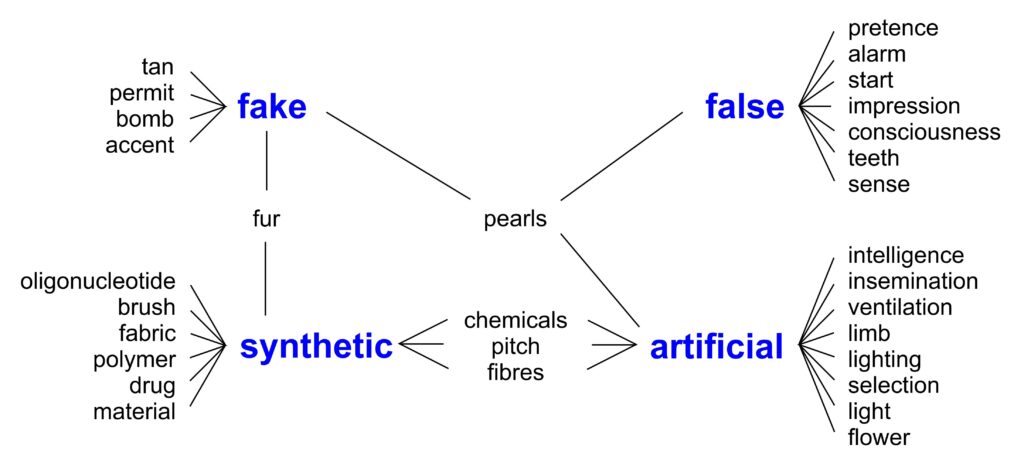
Nevertheless, despite the hopes of writers like the Riding-Jacksons (1997) that every word should precisely indicate one and only one idea, the boundaries between domains of meaning remain fuzzy.
Grammatical categories tend to be more clearly defined than words, but they too are affected by fuzziness. Words like “before” and “after” may have begun as prepositions, but they were later also used as conjunctions and adverbs:
before the revolution.
before I was born
Have you been here before?
Though it began as a preposition, “like” is also used as a conjunction, especially since “as” has various meanings (because, while) in addition to comparison.
Winston tastes good like a cigarette should.
In recent years “like” has become over-used as a “discourse-marker” in conversational English. Phrases, words or sounds such as “um, oh, eh, and, but, so, I mean, you know” are used between units of discourse (Schiffrin, 1987). They can serve as auditory punctuation, highlight particular parts of the discourse, comment on something, request attention, or connect one section to another.
So, James was like feeling under the weather.
Over time English adjectives have sometimes become used as nouns (often with the definite article)
the good, the bad and the ugly
human
and sometimes as adverbs without requiring the suffix “-ly” though this is unusual
He ran fast
He ran quickly
Usage often allows a noun to become a verb and vice versa. Thus “impact” can mean to have an impact upon, and “produce” can mean that which is produced. Verbs can be derived by back-formation from nouns: “enthuse” from enthusiasm, “liaise” from liaison, and “emote” from emotion. Purists may object, but this is how language works: it is far better to use these new verbs than to say “be filled with enthusiasm,” “form a liaison,” or “display emotion.”
Nevertheless, even evolution makes mistakes. In biology these die out; in linguistics they may persist. Sometimes words evolve new senses that are more confusing than helpful. Word mavens correctly advise us not to use “infer” (conclude something from some evidence) in the same sense as “imply (suggest or entail). The words inhabit the same semantic neighborhood, but “infer” derives a conclusion and “imply” presents a hypothesis:
He inferred from the cancelled ticket stubs that I had been at the theater.
He therefore implied that I was lying when I claimed not to have seen the play.
And we should not qualify our superlatives even if others do:
*From his rather unique position
As an aside, we would be better off not qualifying any adjectives, let alone superlatives, with vacuous words like “rather, quite, really, actually” (cf Dreyer, p 3-4)
Although the grammatical rules governing syntax tend to be more clearly defined than those that relate to the parts of speech, all rules have exceptions. The most obvious involves the verb “to be” which, unlike other verbs, uses the subjective case for the noun that follows it (though we only notice this if what follows is a pronoun).
Furthermore, the rules change over time. After acknowledging the importance of the rule of law, Benjamin Dreyer remarks:
The English language, though, is not so easily ruled and regulated. It developed without codification, sucking up new constructions and vocabulary every time some foreigner set foot on the British Isles—to say nothing of the mischief we Americans have wreaked on it these last few centuries—and continues to evolve anarchically. It has, to my great dismay, no enforceable laws, much less someone to enforce the laws it doesn’t have. (Dreyer, 2019, p 6).
He then goes on to recommend some reasonable rules that, at least for the time being, can increase the clarity of the language.
Given the fuzziness of definitions and the plasticity of rules, this posting will consider some of the changes that English language has undergone, evaluate some current trends, and suggest what might happen in the future. In the examples that follow, an asterisk denotes a usage that is considered “incorrect,” and a diamond means a usage that some might consider “improper.”
Changing the Old Orders.
(i) splitting the infinitive
English differs from most other languages in that the infinitive of a verb is composed of two words: the preposition (although in this usage it is just considered a marker) “to” and the basic form of the verb. Many early grammarians proposed that one should not disrupt this two-word combination by inserting an adverb between the marker and the verb.
◊to fully believe
Students were taught the rule so thoroughly that the sight or sound of a split infinitive was painful. I remember a mentor telling me that reading or hearing a split infinitive felt like silk catching on a nail. Some teacher extended the idea of unsplit verbs to mandate that one should not separate an auxiliary verb from the main verb, as in the oath of office (Pinker, 2009):
◊I will faithfully execute the Office of President of the United States
These rules have neither logic nor style. They were finally laid to rest in the introduction to the 1966 television series Star Trek where the mission of the Starship Enterprise was
◊to boldly go where no man had gone before:
Now that we have learned how to split the atom (which originally meant a particle that could not be split), we have no reason not to split the infinitive. Nevertheless, we must be aware of differences in meaning that occur with the adverb in different locations. The adverb typically follows the verb it modifies:
He decided rapidly to go home. [a rapid decision]
He decided to go rapidly home. [a rapid movement]
Split infinitives are not wrong, but they can still sound uneasy:
◊He decided to rapidly go home.
Unsplit infinitives can sound even stranger or completely change the sense, as in the third example:
We expect the price to almost double by next year.
◊We expect the price almost to double by next year.
*We expect the price to double almost by next year.
Negatives do not generally follow the infinitive.
He decided not to go home.
◊He decided to not go home.
*He decided to go not home.
(ii) shall and will
For a long time, various prescriptive grammarians (e.g. Lowth, 1763, p. 62) insisted that the English future tense was formed with the auxiliary verb “shall” in the first person (I and we) and “will” in the second person (you) and third person (he, she, it, they). They further insisted that the opposite usage – “will” in the first person and “shall” in the second and third – conveyed the meaning of promise or threat (in the first person) or promise, threat or command (in the second and third). Fries (1925) reviewed the actual usage of the words over the years in English drama and found no evidence to support this usage. No one knows how the bizarre rule came about. Perhaps it was an affectation of a small group of speakers. The rule has been completely abrogated. Nowadays we use “will” to express the simple future for all persons and “shall” to express promise or compulsion. There is no more ringing first-person promise than Churchill’s
We shall fight on the beaches, we shall fight on the landing grounds, we shall fight in the fields and in the streets, we shall fight in the hills; we shall never surrender.
Probably because it is no longer used for the simple future, the word “shall” has become much less frequent over the past century. The following is from Google Books Ngram Viewer. Note that the scales are different for the two words with “shall” occurring half as frequently as “will”
(iii) Dangling modifiers
Many grammarians insist that all modifiers (such as phrases and participles) must clearly and unambiguously link to a word in the superordinate clause of the sentence. Thus
◊Climbing higher, the view became more and more beautiful.
As we climbed higher, the view became more and more beautiful.
Climbing higher, we found the view more and more beautiful.
Most examples of this problem, as in the first example, are innocuous. No one would think that the view was doing the climbing. Many participles are used quite correctly in this dangling way (see Pinker, 2014, p 211)
Excluding a miracle, Donald Trump will win all the states where the Missouri river flows.
However, one must beware of ambiguity:
*Having killed a man and shown no remorse, I do not believe that we should parole the prisoner.
Perhaps we should not worry about dangling per se but just ensure that that we do not dangle ambiguously.
(iv) adverbial disjuncts.
Many grammar books define an adverb as a word that modifies a verb, an adjective or another adverb. However, adverbs have long been used to modify whole sentences. Quirk and his colleagues (1985, pp 612-620) called these adverbs “disjuncts.” They distinguished two kinds: style disjuncts, such as “honestly” or “sadly,” that convey information about the speaker; and content disjuncts such as “really” or “understandably” that convey information about the truth or value of the sentence or clause they are attached to. These disjuncts often come at the beginning of a sentence, as in Rhett Butler’s famous last line in the 1939 movie Gone with the Wind:
Frankly, my dear, I don’t give a damn.
However, disjuncts can also come later in the sentence:
We believe that he probably murdered his wife.
He did not murder in a probable manner. What is probable is the truth of the statement that he murdered his wife. However, we must beware of ambiguity, since some adverbs can modify the verb as well as the sentence. This may be why there was such an upset when the adverb “hopefully’ became popular in the sixties. This adverb can be used to mean “in a hopeful manner” as well as “it is to be hoped that:”
We travelled hopefully to London, but we were unable to find work.
Hopefully, we travelled to London to find work rather than to escape our responsibilities.
Nevertheless, many stylists quickly expressed outrage about “hopefully” as an adverbial disjunct. This reaction came in part from a prolonged dislike of dangling modifiers – words and phrases that did not precisely link to other words. However, much of the outrage was likely against the type of person who used the word rather than the word itself:
hopefully in the sense of ‘it is to be hoped (that)’ has never been respectable. When someone says or writes, ‘Hopefully, the plan will be in operation by the end of the year,’ we know immediately that we are dealing with a dimwit at best. The most serious objection to the use of hopefully in a dangling position, often signalled by a following comma, is not that it is not good English, though it is not, nor that it is a trendy usage, though it is, nor even that the thing remains obstinately afloat after many well-aimed salvoes of malediction, but that it is dishonest. In the example given, all that is really meant is, ‘I/we hope the plan will be in operation by the end of the year,’ or still less dishonestly, ‘With luck, the plan,’ etc., but the type who says or writes hopefully puts on a false show of nearly promising something while actually saying precious little. (Amis, 1997, pp 158-9)
The following illustration shows how frequently the disjuncts “hopefully” and “frankly” occur in Google Books using the Ngram Viewer. I have used the case-sensitive option to limit the search to words that begin sentences: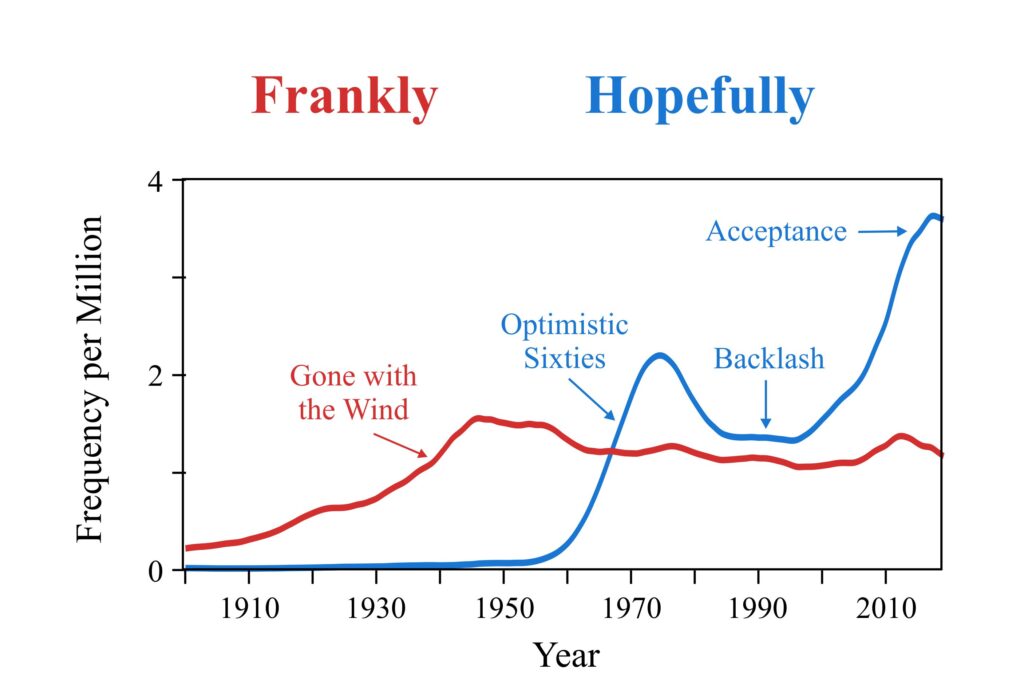
As indicated in the diagram, “hopefully” is now accepted by several style guides. In 2012, Charles Osgood expressed his grief at this development:
The Associated Press Stylebook now accepts the adverb “hopefully” and the way that it’s been misused by so many for such a long time. As in, “Hopefully, it won’t rain today.” Now, arguably, if the same mistake is made by enough people for a long enough time, it becomes okay. But the late Edward Newman, network newscaster and writer of books on English usage had a sign in his office which read, “Abandon all ‘hopefully’ ye who enter here.” He hoped to discourage us from using “hopefully” the way the Associated Press now says is perfectly okay. “It raineth on the just and on the unjust” as we know, and on those who speak correctly and on those who don’t. And so, perhaps it doesn’t matter if grammar’s rules pertain, but I have Yankee tickets and I hope it doesn’t rain.
Hopefully, such indignation might in future be channeled to defeat injustice rather than to denounce a simple word.
(v) impersonal relative pronouns
Some early rules about the relative pronouns are now no longer observed. “Whose” was originally meant to indicate only personal possession, but modern English uses also uses this pronoun for inanimate relations:
◊an idea whose time has come
an idea the time of which has come.
The former is so much more fluent.
“That” has also come to be used as a relative pronoun for persons as well as things, as in Gershwin’s song:
◊The man that got away
This usage may be partly related to an old distinction between “that” and “which/who” for restrictive and non-restrictive clauses. A clause that restricted or defined someone or something was generally formed without punctuation and with “that.” Gershwin’s song refers to the particular man that got away. A non-restrictive clause, one that simply provided extra information, was isolated by commas and introduced by “who” or “which.”
The man that lives next door won the prize.
John Smith, who lives next door, won the prize.
Nowadays “who” and “which” can also be used with restrictive clauses. What is important is the absence of the commas:
The man who lives next door won the prize.
Times are Changing
(i) Cases for pronouns
English does not differentiate between subjective and objective cases other than for some personal pronouns (“I/me, he/him, she/her, we/us, they/them”) and the relative pronouns “who” and “whom” (and variants thereof). English generally distinguishes between subject and object by means of word order. Subject precedes and object follows the verb, except occasionally in rhetoric and poetry, when both may precede.
We have defeated the enemy, and liberated our country.
The enemy we have defeated, and our country we have liberated.
Perhaps because we are not used to cases, errors in the cases of pronouns abound. The most notorious of these is
*between you and I
How this usage came about is not known. Perhaps it occurred as an overcorrection following a teacher’s instructions not to use “me and you,” but to politely put the first person in the second place and use the subjective case.
*Me and you will be good friends.
You and I shall be good friends.
However, the cases are not clearly thought out. Modern English often uses the objective case for pronouns after the verb to be:
◊Hello, it’s me again.
Saying the more correct “It is I again” sounds wrong.
Another point of contention is what case to use after “than.” Prescriptivists have proposed that we use the subjective case in the following construction:
John is taller than I.
◊John is taller than me.
They argue that “than” is being used as a conjunction and that the word “am” has been elided at the end of the sentence. However, “than” is a preposition as well as a conjunction, and many modern stylists would consider both examples correct. To me the second example is preferable.
What is going to happen to the English personal pronouns? The use of “me/him/her/them” after the verb “to be” will become more common. I think that the objective case will still be used after other verbs and after prepositions.
However, with the relative pronouns “who/whom” everything is in flux. The objective “whom” should be used after a proposition or when the pronoun is the object in the main clause that it introduces:
The man from whom he took the book …
The man whom Mary loved …
However, if the preposition is not directly attached to the pronoun, most people nowadays use “who:
◊The man who he took the book from …
Similarly, when the pronoun represents the simple object, “who” sounds easier:
◊The man who Mary loved …
◊Do you see who I see?
In questions, “who” seems much more reasonable, perhaps because questions are more common in informal speech than in writing:
Whom should we elect as President?
◊Who should we elect as President?
One of the disadvantages of “whom” is that we are sometimes tempted to use it improperly:
*The candidate whom I believe should be elected president is not Donald Trump.
In this particular example, the pronoun is not the object of “believe” but the subject of “should be elected.”
However, the sentence is far too convoluted for its own good, and could be much better expressed as:
I believe that Donald Trump should not be elected president.
As Greene (2018, pp 13-14) points out, no one would suffer much if we were to do away with “whom.” The word has significantly declined in frequency over the past century. Perhaps it will soon only be used when it immediately follows a preposition. The following is from Google Books Ngram Viewer, which tracks the frequency of words in the books that Google has digitized. Note that there are separate scales for the two words, with “who” generally occurring more than five times more frequently than “whom.”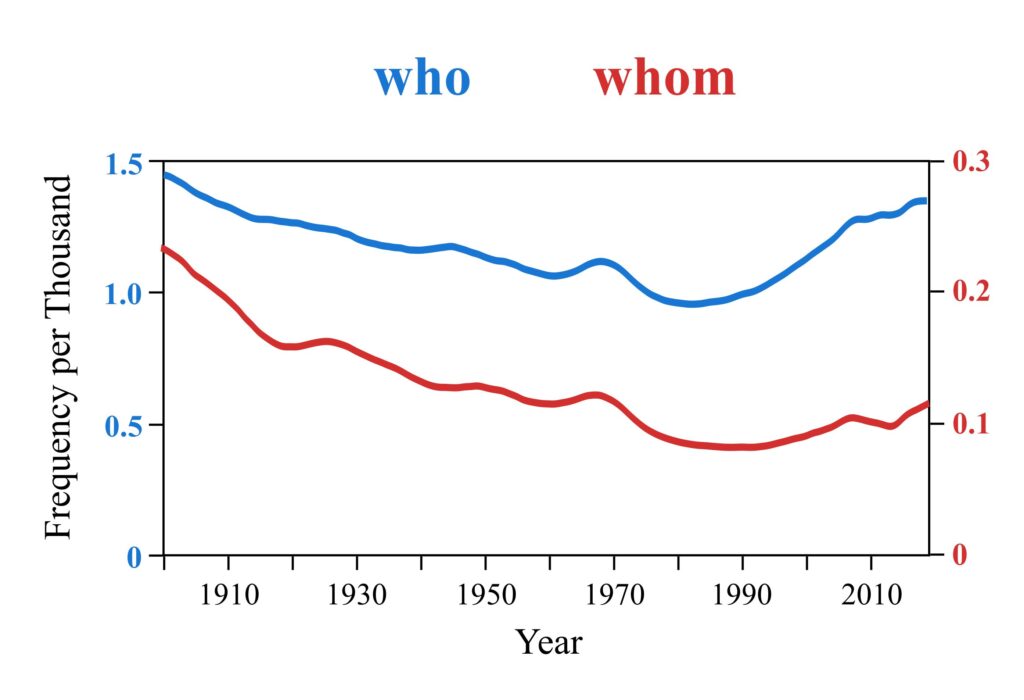
(ii) Singular they
In recent years it has become obvious that human gender is not restricted to either male or female. Both biology and psychology allow for individual genders between these two extremes and for some fluidity in their location. The language therefore needs a personal pronoun that does not specify male or female. Many have suggested that we use “they” in the both singular and plural forms like “you.”.
The singular “they” has caused a great outcry among those that fear that the language is losing its clarity and world becoming irrational. However, it is but simple politeness. If someone goes by the name “Michael” they should not be called “Mickey.” If someone wishes to be referred to as “they,” they should not be called “he” or “she.”
The English language has struggled for years to refer to a person without defining their gender. For example, once schools became coeducational, they needed to instruct both male and female students:
The student should write his or her name on the exercise books. He or she should carefully complete all assignments.
Both “his or her” and “he or she” are clumsy. Varying “he or she” with she or he” sounds even clumsier. The generic “he” meaning either “he” or “she” has long been used, but this is as confusing as it is misogynistic.
Baron (2020) has reviewed the many words that have been coined to refer to a person without mentioning gender – from “ou” to“e” to “thon” to “zie.” None became widely accepted. However, as Baron points out, the answer has been there all along. The English language has used the singular “they” for centuries in constructions with “everyone”:
Everyone indicates their vote by placing an X beside the name of the candidate they wish to elect.
Now we all know what has happened over the years to the right of women to vote if we substituted in this sentence the generic “his” for “their” and “he” for “they.”
Politeness, linguistics and politics all justify the singular “they.” What is interesting is that verb that goes with singular “they” is typically plural. In the last example, we do not say “they wishes.” This seems to be an interesting feature rather than a significant bug.
(iii) subjunctives
Many languages use a subjunctive form of the verb to express actions or states that are hoped for (optative) or commanded (mandative). In the English subjunctive, for all persons both singular and plural, the verb is in the base form. This makes it easy to recognize for the verb “be” since the base form does not occur in the actual present tense
He insisted that I/you/we/he/she/they be kept informed.
I hope that my sins be forgiven.
For other verbs it is only noticed by the missing ‘s’ in the third person singular.
He insisted that she come to the meeting.
However, the meaning of the subjunctive can easily be expressed using modal auxiliaries
He insisted that I must/should be kept informed.
I hope that my sins may/might be forgiven
This approach allows one to qualify commands (“should” is less insistent than “must”) and hopes (“may” is stronger than “might”)
However, using the simple future instead of the subjunctive does not offend the modern ear.
He insisted that I will be kept informed.
I hope that my sins will be forgiven
In all probability the English subjunctive will soon die out, though it may survive in certain idiomatic expressions such as
God forbid …
Long live the Queen!
Grammarians (e.g. Greenbaum, 1996, pp 268-9) have also described a “past subjunctive” (equivalent to the simple past) that is used to express something that is not true (counterfactual) or hypothetical:
If I were a rich man …
This usage is only evident in the first or third person singular of the verb “to be” since otherwise the form of the verb is the same as the simple past. As Pinker (2014, pp 232-30) points out, this usage is actually neither past nor subjunctive, but rather represents an “irrealis” mode. Although “if I were” will likely persist, its meaning can also be expressed by using the simple past tense to refer remoteness in fact rather in time:
If I was a rich man …
(iv) the dying of the gerund
In English adding the suffix “-ing” to a verb makes either the present participle – an adjective that describes how a noun is acting – or a gerund – a noun that describes the action. When acting as the unmodified subject of a clause or sentence, the sense of the gerund can sometimes also be expressed with the infinitive:
To err is human
◊Erring is human
Swimming is prohibited
Once it is used in other parts of the sentence, the gerund becomes confusing. According to the old rules of grammar the subject of a gerund should be in the possessive case:
I was upset by John’s insinuating that the business was a scam.
◊I was upset by John insinuating that the business was a scam.
However, most people prefer the second version. John is the subject of the gerund, not the possessor thereof. Numerous examples can show how strange the possessive can sound in this situation (e.g. Pinker, 2014, p 212):
*I was annoyed by the people behind me in line’s being served first
*She objects to men’s making more money than women for the same work.
With this problem tentatively solved, another immediately arises – what to do with pronouns?
I was upset by his insinuating that the business was a scam.
◊I was upset by him insinuating that the business was a scam.
*I was upset by he insinuating that the business was a scam.
In the second (more common) usage, the pronoun takes the case of the gerund which is the object of the preposition “by.” However, this does not work if the gerund is the subject of the sentence, where only the possessive sounds correct.
His insinuating that the business was a scam upset me.
*He insinuating that the business was a scam upset me.
My feeling is that the gerund is far too confusing to persist much longer in any language that aims for clarity of communication. Sentences with gerunds can and should be recast using some other verb form:
I was upset by his insinuation that the business was a scam.
I was upset that he had insinuated that the business was a scam.
(v) apostrophes
Over the years the apostrophe has been used in many different ways, some of which are no longer considered proper English (Crystal, 2019, p 215). Its first use, derived from the French, was to indicate omitted letters, which happen much more frequently in French (l’homme, n’est-ce pas): than in English (didn’t, won’t)
In addition, adding an apostrophe plus “s” to a noun has come to denote the possessive case. This rule is not true for pronouns, which have their own possessive form:
The dog’s ears are pointed. [one dog]
*It’s ears are pointed.
The rule for the indicating the possessive for plural nouns is simply to add the apostrophe after the “s”
The dogs’ ears are pointed. [more than one dog]
For names ending in a sibilant, simply add the apostrophe plus “s” though some would recommend that for foreign names ending in a sibilant, perhaps just add the apostrophe:
Charles’s son
Texas’s cities [though “the cities of Texas” or “Texan cities” would be far better]
Sophocles’ plays
Much recent outrage has been expressed about the improper use of the apostrophe, for example to indicate the plural:
However, in the 18th Century the apostrophe was correctly used to indicate the plural for words of foreign origin ending in a vowel, for example “comma’s” (Piton & Pignon, 2010), though this particular usage is no longer accepted as correct.
I am happy at present to follow the rules that copy-editors suggest. But I am unaware of a case where an improper apostrophe has led to ambiguity or a failure to communicate. And I shall not correct those who do not follow the arbitrary rules.
If the apostrophe of possession were to die out in the near future it would not be missed. We could write “dogs” and, as in speech, the context would indicate whether we meant the plural or the possessive, or both. We could then simply use the apostrophe to indicate missing letters. This is the etymological meaning of the word (from the Greek “turning away”).
Clarity
The best advice for writing or speaking English is to make sure that what you say is clear. Grammatical rules are there to make this possible. The best advice about how to be clear is to check (and recheck) to see if what you have written or what you are about to say is ambiguous. When applied to linguistics, Murphy’s law states that if something can be misinterpreted it will be. And even if it isn’t, the possible misinterpretation will have to be considered, and will thus slow down the correct interpretation.
The other main rule is that your sentences should not be so convoluted that they become incomprehensible. If your reader or listener has difficulty figuring out how the parts of your sentences fit together, they will get tired and have no energy left to understand their meaning. Henry James may have written sentences containing tens of clauses and hundreds of words but you should not. Precision is always better than prolixity.
Envoi
The goal of language is to communicate. We should still keep and teach sensible rules that facilitate this goal. However, if the sense of the words is clear, one should not greatly care if these rules are broken. And, as the following brief story Ships in the Night (Bush, 1994) illustrates, it is probably best not to correct each other:
I had only just arrived at the club when I bumped into Roger. After we had exchanged a few pleasantries, he lowered his voice and asked, “What do you think of Martha and I as a potential twosome?”
“That,” I replied, “would be a mistake. Martha and me is more like it.”
“You’re interested in Martha?”
“I’m interested in clear communication.”
“Fair enough,” he agreed. “May the best man win.” Then he sighed. “Here I thought we had a clear path to becoming a very unique couple.”
“You couldn’t be a very unique couple, Roger.”
“Oh? And why is that?”
“Martha couldn’t be a little pregnant, could she?”
“Say what? You think that Martha and me….”
“Martha and I.””
“Oh.” Roger blushed and set down his drink. “Gee, I didn’t know.”
“Of course you didn’t.” I assured him. “Most people don’t.”
“I feel very badly about this.”
“You shouldn’t say that: I feel bad….”
“Please, don’t,” Roger said. “If anyone’s at fault here, it’s me!”
Historical References (Available at Archiv.org and other websites)
Bullokar, W. (1586). Bref Grammar for English. London: Edmund Bollifant. (Transcription available in pp 331-285 of Plessow, M. (1906). Geschichte der Fabeldichtung in England bis zu John Gay (1726). Berlin: Mayer & Müller.)
Cawdry, J. (1604) A table alphabeticall. London: Edmund Weaver.
Jespersen, O. (1933). Essentials of English grammar. New York: H. Holt and Company
Jespersen, O. (1909-1949, reprinted 1961). A modern English grammar on historical principles. 7 Volumes. London: Allen & Unwin.
Johnson, S. (1755). A dictionary of the English language. London: J. and P. Knapton; T. and T. Longman; C. Hitch and L. Hawes; A. Millar; and R. and J. Dodsley. Volume I, Volume II, transcription.
Lowth, R. (1763). A Short Introduction to English Grammar: With Critical Notes (2nd Ed.). London: A. Millar and R. and J. Dodsley.
Priestley, J. (1772). The rudiments of English grammar. (3rd Ed). London: J and F. Rivington.
Swift, J. (1712). A proposal for correcting, improving and ascertaining the English tongue. London: Benjamin Tooke.
Current References
Aarts, B. (2004). Fuzzy grammar: A reader. Oxford: Oxford University Press.
Aarts, B., Bowie, J., & Popova, G. (Eds.) (2020). The Oxford handbook of English grammar. Oxford: Oxford University Press.
Aarts, B., & McMahon, A. M. S. (Eds.) (2006). The handbook of English linguistics. Malden, MA: Blackwell.
Baron, D. (2020). What’s your pronoun? Beyond he & she. New York: Liveright (W.W. Norton & Company).
Bush, L. (1994). Ships in the night. New York Times, April 4, 1994, p A21.
Crystal, D. (2019). The Cambridge Encyclopedia of the English Language. 3nd Edition. Cambridge, U.K: Cambridge University Press.
Dreyer, B. (2019). Dreyer’s English: An utterly correct guide to clarity and style. New York: Random House
Fernández Martínez, D. (2012). Authority in Lowth’s and Priestley’s prefaces to their English Grammars. Studia Anglica Posnaniensia 47/4.
Fowler, H. W. (1926, edited and revised by Burchfield, R. W., 2004). Fowler’s modern English usage. Oxford: Oxford University Press.
Fries, C. C. (1925) The periphrastic future with “shall” and “will” in modern English. Publications of the Modern Language Association 40, 963–1024.
Greenbaum, S. (1996). The Oxford English grammar. London: Oxford University Press.
Greene, R. L. (2018). Talk on the wild side: The untameable nature of language. London: Economist/Profile Books.
Kaminski, M. P. (2017). Visualisation of collocational preferences for near-synonym discrimination. Lexikos, 27, 237-251.
Landau, S. I. (2001). Dictionaries: The art and craft of lexicography. 2nd Ed. Cambridge: Cambridge University Press.
Levelt, W. J. M. (1989). Speaking: From intention to articulation. Cambridge, MA: MIT Press
Linn, A. (2006). English grammar writing. In B. Aarts and A. M. S. McMahon (Eds.) The handbook of English linguistics. (pp 72-91). Malden, MA: Blackwell.
Löbner, S. (2013). Understanding semantics. London: Routledge
Lynch, J. (2009). The lexicographer’s dilemma: the evolution of “proper” English, from Shakespeare to South Park. New York: Walker & Co.
Peters, P. (2006). English usage: prescription and description. In B. Aarts and A. M. S. McMahon (Eds.) The handbook of English linguistics. (pp 759-780). Malden, MA: Blackwell.
Pinker, S. (2009) Oaf of office. New York Times, Jan 21, 2009.
Pinker, S. (2014). The sense of style: The thinking person’s guide to writing in the 21st century. New York: Viking
Piton, O., & Pignon, H. (2010). “Mind your p’s and q’s?”: or the peregrinations of an apostrophe in 17th Century English. arXiv
Quirk, R., Greenbaum, S., Leech, G., & Svartvik, J. (1985). A Comprehensive grammar of the English language. London: Longman.
Ravin, Y., & Leacock, C. (2000). Polysemy: Theoretical and computational approaches. Oxford: Oxford University Press.
Riding Jackson, L., Jackson, S. B., (edited by Harmon, W., 1997). Rational meaning: A new foundation for the definition of words, and supplementary essays. Charlottesville: University of Virginia.
Schiffrin, D. (1987). Discourse markers. Cambridge, UK: Cambridge University Press.
Strunk, W., & White, E. B. (2009). The elements of style. 50th Anniversary Edition. New York: Pearson Longman:




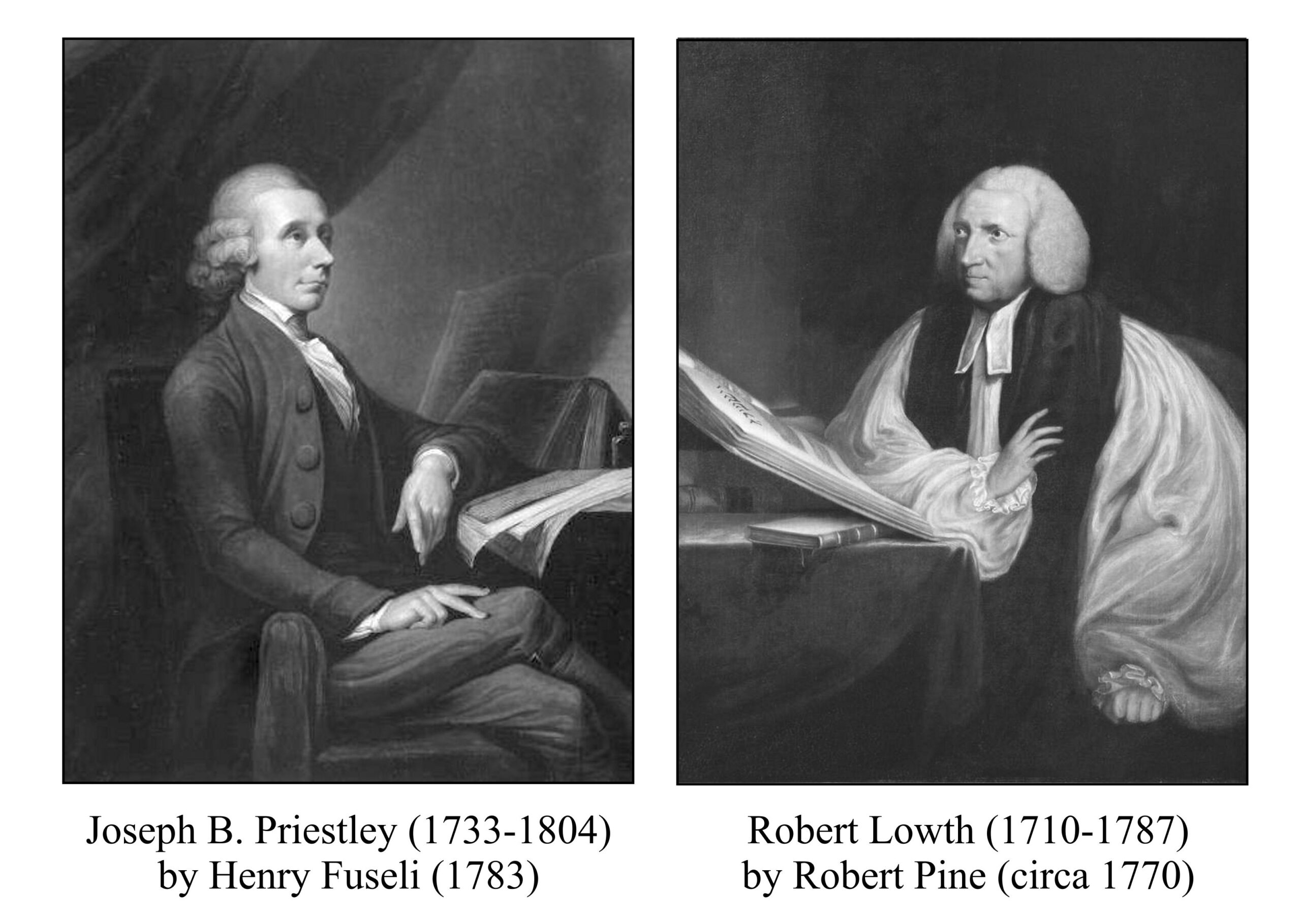
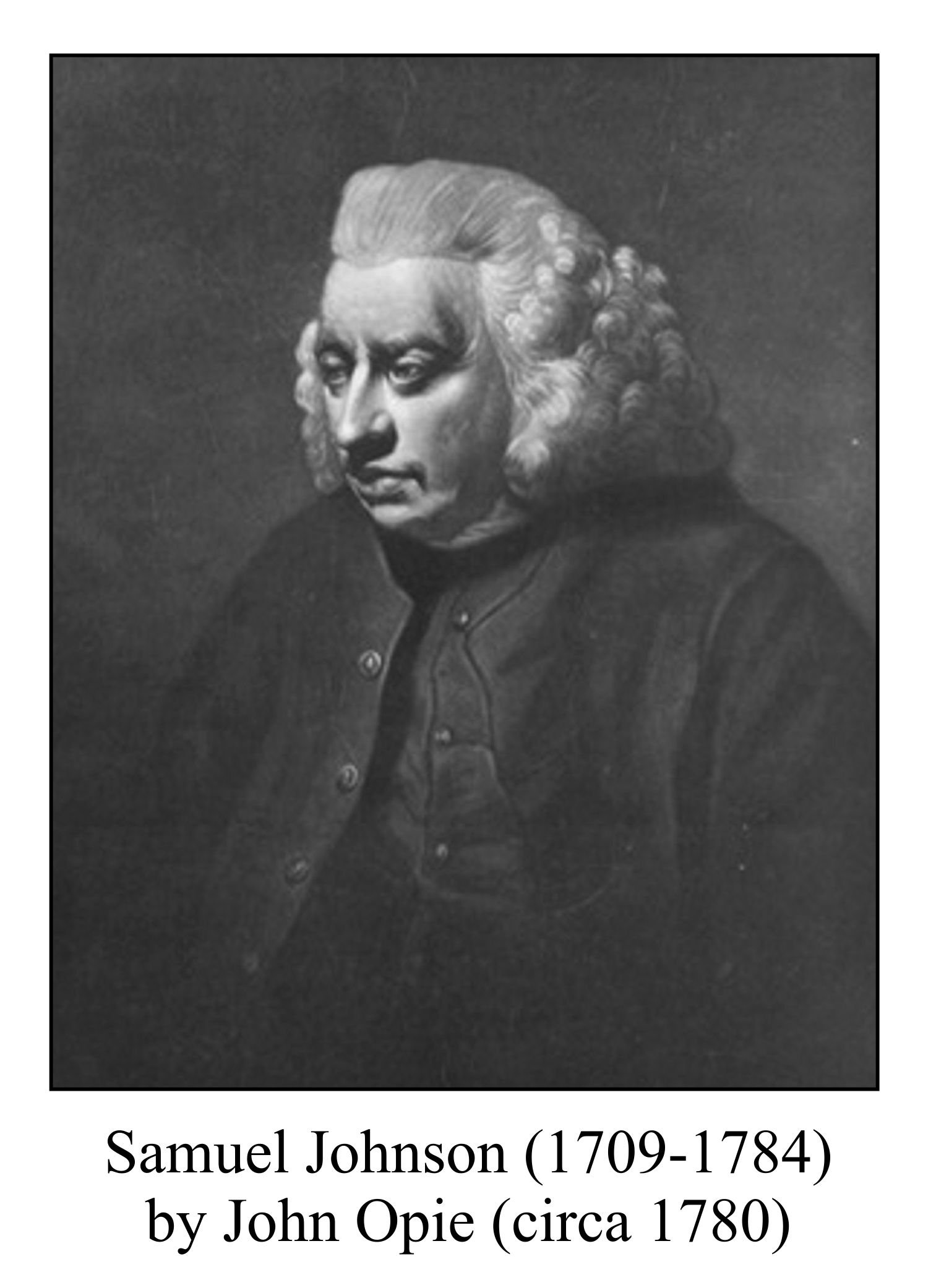
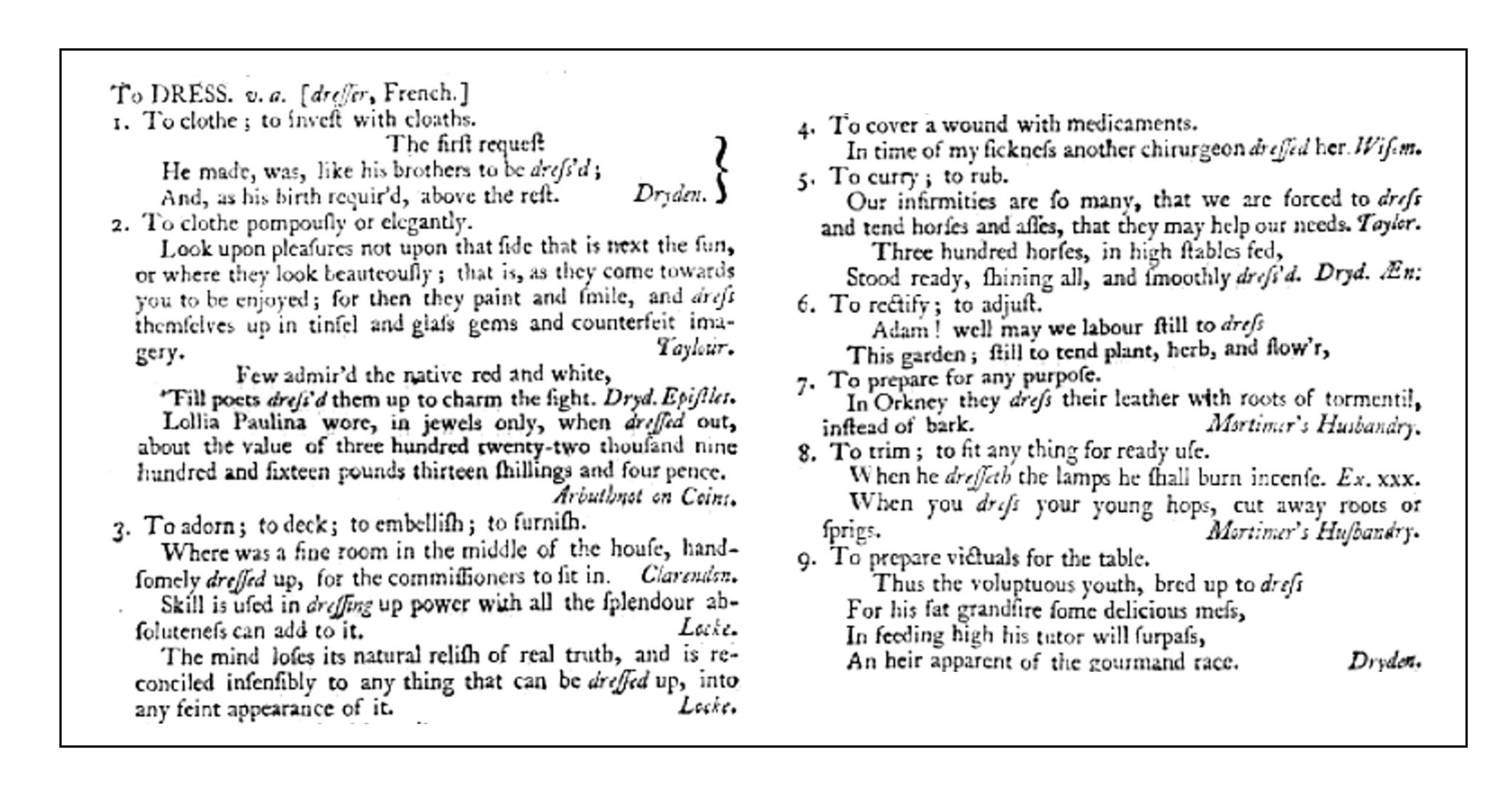

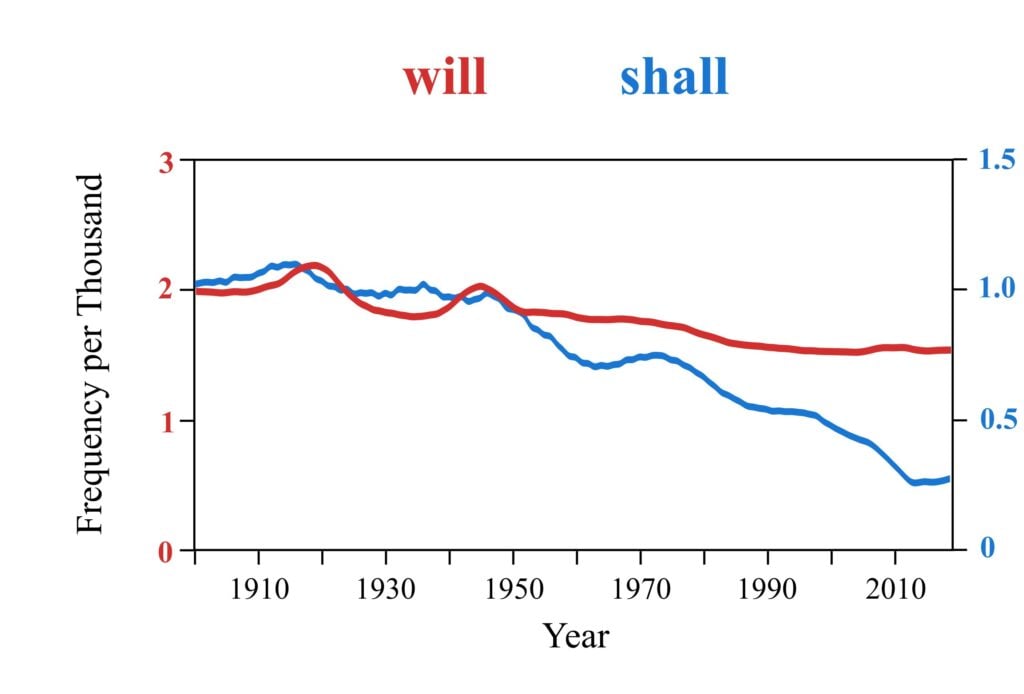

Thank you Terry for your thoughtful, informative and thoroughly researched post, as always.
One very obvious example of change in a languages is the emergence of acceptable colloquialisms. They are often a result of easier pronunciation, and the simplest example in English is the use of ‘don’t’ rather than ‘do not’. In Hebrew grammar, to avoid ambiguity in the sentence, the object of any action is preceded by the word ‘et’. Thus, in the first sentence in Genesis, the Hebrew word for ‘heaven’ (‘shamaim’) is preceded by the word ‘et’ to state that the object of creation was heaven.
When Hebrew was revived as a spoken everyday language, after 18 centuries of being confined to prayer books and scripture, it began as the formal language of holy books, but soon began developing colloquialisms in spoken language. One common example was connecting the ‘et’ to the object, resulting in ‘tashamaim’ instead of ‘et hashamaim’.
Among the Dead Sea Scrolls from the 2nd century CE was a trove of dispatches from the commander of the last rebellion of the Jews against the Roman Empire. One of these dispatches begins with ‘From Simeon Ben Koseba to Yeshua Ben Gilgola and the men of your company, greeting! I call heaven to witness against me that…’. In the calling to heaven to witness, Ben Koseba writes in Hebrew ‘tashamaim’, rather than the grammatically-correct ‘et hashamaim’. When this dispatch was discovered in the caves of the Judaean Desert in the early 1960s, the archeologists that read it have been using a language that less than a century earlier had been dead except for formal religious writings. During approximately 70 years since it was revived, the spoken Hebrew language converged on the same colloquialisms used by outlaws and rebels 18 centuries earlier, even in their written commands: ‘tashamaim’ rather than ‘et hashamaim’.
Many thanks for this comment. It is fascinating to see how perhaps some changes in a language were just meant to be.
I have been involved with the development of the application of an “invented language” since 1971. I was the teacher and team leader in the original clinical team that introduced Blissymbolics to children with cerebral palsy at, what is now called, The Holland Blloorview Children’s Rehabilitation Centre, Blissymbolics is a semantic graphic “language” (or communication system?) that was created by Charles K Bliss (major publication, Semantography-Blissymbolics, 1965) with the goal of achieving world peace. We applied ‘Bliss’ as as an expressive language for children who could not speak due to cerebral palsy. Our approach was adopted around the world for this purpose throughout the 70’s-80’s and our international support organization continues to this day. Through our ongoing work of expanding vocabulary we experience regularly the challenges of participants viewing our task through the two different lenses of descriptivism and prescriptivism. Your essay was much appreciated!
Shirley McNaughton
Many thanks for the comment. I find it intriguing that all language systems have rules that must be maintained as much as possible, and yet also changed when needed.
Interesting article, Terry! I learned a lot. It took me a week to read – record time with a one-year-old! I’m guilty of using “hopefully” as an adverbial disjunct. In general, I use “I hope” and “hopefully” too much. I’ve been trying to get away from it since reading how it’s a “weak” word that women use more than men. Today I tried substituting “trust” in an email… “I trust we’ll have an opportunity to work together.” Sounds less wishy-washy.
I appreciate you taking the time to write this. And not “your taking the time to write this” 😉
Hi Amy Thanks for the comment. These days I think we need all the hope and hopefully and trust we can find!